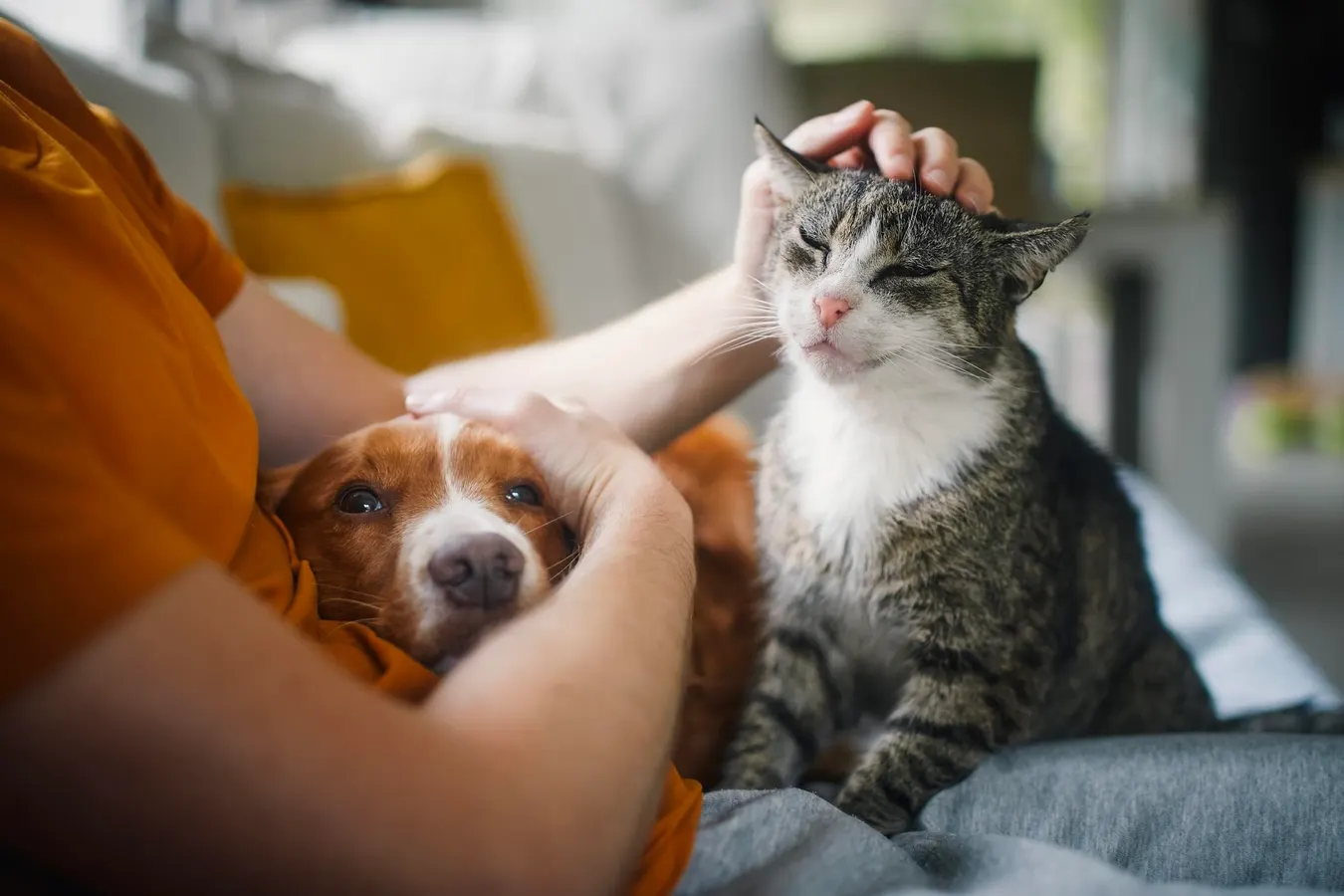Copyright forbes

Millennial pet parent with cat and dog With rising healthcare, childcare, and housing costs, many members of the Gen Z and Millennial generations are delaying or forgoing parenthood and deciding pets are the new kids. Pets being the new kids for these generations has some interesting consequences, including much higher spending on their pets than older generations, according to a LendingTree study. So here are some financial considerations and implications of pet ownership for people under 40. Initial Costs Of Pet Ownership Many of the costs of pet ownership are concentrated early in the animal’s life and toward the tail end. Here are some of the initial costs. Adoption Or Purchase Costs Coming by a four-legged companion can be very costly or inexpensive depending on your methodology. As a Millennial myself, I opted for adoption, but I come from a family of breed loyalists. Adopting typically results in a fee or donation to the organization you are adopting from and ranges between $50 and $350. Rover estimates that purebred dogs from reputable breeders can cost between $950 and $5000. Certain purebred cat breeds can go for up to $125,000. Basic Supplies Before your fur baby even gets home, you will need some basic supplies, including food, collars, carriers, ID tags, microchip registration, bedding, toys, grooming supplies, and even pet furniture if needed. The ASPCA estimates the initial costs of pet ownership to be an average of $1,030 for dogs and $455 for cats. However, keep in mind than Millennials and Gen Z are spending much more than average across the board. As an example, my cat’s automatic litter box cost more than the entire ASPCA estimate for initial costs. MORE FOR YOU Ongoing Expenses Ongoing expenses of pet parenthood include healthcare, food, litter, toys, treats, sitters, housing and grooming. ASPCA estimates that between health insurance, preventative medicine, and routine medical costs, dogs cost about $926 and cats cost $648 per year. Notably, this does not include any injury or illness. I’ve known many pet parents who’ve dealt with injuries and illnesses costing between $1,000 and $25,000. If you do have insurance coverage, generally a portion of this can be covered. But unlike health insurance for humans, there is usually no cap on how much you must pay out of pocket. Also, unlike health insurance for humans, pre-existing conditions are often not covered. Let’s say you adopt a pet with a condition causing seizures. Any hospitalizations or additional health conditions or injuries that stem from the seizures may need to be entirely paid for out of pocket. Chewy estimates annual food costs between $200-3,000 depending on the dietary needs. Grooming And Maintenance Grooming and maintenance costs can range significantly depending on your animal’s breed. I have an adopted short-hair indoor cat, so her grooming costs are basically nonexistent, but maintenance costs include things like litter, puzzle toys, and treats. For those with long-haired breeds or whose animals spend a lot of time outdoors, their grooming costs may be significantly higher. I work with a couple who recently moved from San Francisco to New York and for the first time in years, must commute into an office. For the first time since the pandemic, they needed a daily dog sitter. Rover estimates average costs per day to be about $25-$45 but in cities like New York, this average is closer to $60 for daycare and $100 for overnight. As a result, this couple ended up adding an additional $1,800 per month in just pet sitter expenses. Your housing expenses may increase with pet ownership. If you are renting, you can face additional deposits, limited housing availability, and pet rent obligations. Not to mention, the pet could cause damage to the apartment or your furniture, at costs to you. If you are looking at buying, a pet may also impact this decision. I know plenty of people for whom a yard was non-negotiable in a house purchase decision for the sole reason of wanting the space for their pet. Benefits Of Pet Ownership Having a loving companion is a clear benefit of pet ownership, but there are other benefits that do have positive emotional, health, and financial implications. Caring for an animal has proven benefits to reduce or eliminate symptoms of depression. The National Institute of Health finds that depression can result in decreased productivity, stretches of absenteeism, and job loss, all resulting in decreased income potential. While pet ownership was found to be positively correlated with higher income, there have been no studies into causation. The National Institute of Health also finds that having a pet can reduce stress, improve heart health, and support child development of emotional and social skills, which all have positive health and financial benefits. Fitting Into Your Financial Plan An Empower study found that 57% of people include their pets in their long-term financial planning needs. Part of this includes estate planning. Oftentimes, when I ask investors about beneficiaries or what happens if they pass away, they invariably mention their pets. While we cannot list a pet as a direct beneficiary or have them manage assets themselves, you can include your wishes for pets in a will or trust, including dedicated funds for that pet’s needs. Many pet parents may keep a slightly higher emergency reserve or even a separate savings versus non-pet parents to be able to afford surprise vet bills. In conclusion, for Gen Z and Millennials, pets are increasingly becoming integral family members, leading to significant financial considerations. Initial costs, ongoing expenses, and potential healthcare needs can be substantial. However, the emotional and health benefits, such as reduced stress and improved mental well-being, can outweigh these financial burdens. It's essential for young pet owners to incorporate pet-related costs into their financial planning, ensuring a secure and happy life for both them and their furry companions. This informational and educational article does not offer or constitute, and should not be relied upon as, tax or financial advice. Your unique needs, goals and circumstances require the individualized attention of your own tax and financial professionals whose advice and services will prevail over any information provided in this flyer. Equitable Advisors, LLC and its associates and affiliates do not provide tax or legal advice or services. Securities offered through Equitable Advisors, LLC (NY, NY 212-314-4600), member FINRA, SIPC (Equitable Financial Advisors in MI & TN) and offers annuity and insurance products through Equitable Network, LLC, which conducts business in California as Equitable Network Insurance Agency of California, LLC). Financial Professionals may transact business and/or respond to inquiries only in state(s) in which they are properly qualified. Any compensation that Ms. Jones may receive for the publication of this article is earned separate from, and entirely outside of her capacities with, Equitable Advisors, LLC and Equitable Network, LLC (Equitable Network Insurance Agency of California, LLC). AGE-8505030.1 (10/25)(exp. 10/29) Editorial StandardsReprints & Permissions



